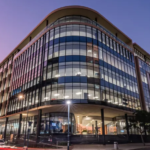The location of a business can significantly influence its success, affecting everything from customer accessibility to operational efficiency. For entrepreneurs in Botswana, the choice of location is especially critical due to the country’s unique economic and geographic landscape. However, many business owners make costly mistakes when deciding where to establish their operations. Here are 10 common mistakes entrepreneurs make in choosing a business location in Botswana, along with tips to avoid them.
1. Overlooking Accessibility for Customers
Many entrepreneurs choose locations that are either too remote or difficult for customers to access, reducing foot traffic and sales.
How to Avoid:
• Prioritize locations that are easily reachable by public transport or major roads.
• Ensure the area has adequate parking for customers.
• For retail businesses, choose high-traffic areas such as malls or busy streets in cities like Gaborone or Francistown.
2. Ignoring Proximity to Suppliers
Some businesses fail to consider the distance from suppliers, which can increase transportation costs and delay operations.
How to Avoid:
• Choose a location that minimizes logistical challenges and delivery times.
• For manufacturing or wholesale businesses, consider setting up near industrial zones or transport hubs.
• Evaluate the reliability of suppliers in the chosen area.
3. Neglecting Market Demand in the Area
Selecting a location without analyzing local demand for your product or service often leads to poor sales and limited growth.
How to Avoid:
• Conduct thorough market research to understand customer needs in the area.
• Assess the purchasing power of the local population.
• Use tools from institutions like the Local Enterprise Authority (LEA) to analyze regional demand.
4. Choosing Based on Cost Alone
While affordability is important, opting for the cheapest location can compromise visibility, accessibility, and quality.
How to Avoid:
• Balance cost considerations with strategic benefits like customer accessibility and business growth potential.
• Calculate the total costs, including rent, utilities, and renovations, to determine affordability.
• Seek advice from real estate professionals familiar with Botswana’s business hubs.
5. Ignoring Competition in the Area
Entrepreneurs sometimes establish businesses in locations saturated with competitors, making it harder to attract customers.
How to Avoid:
• Conduct a competitor analysis to evaluate the density of similar businesses in the area.
• Consider locations with less competition or where your business can offer a unique value proposition.
• Avoid directly competing with established businesses unless you have a clear competitive advantage.
6. Failing to Consider Future Growth
Many entrepreneurs choose locations based solely on their current needs, overlooking future expansion possibilities.
How to Avoid:
• Select a location with sufficient space for future growth.
• Investigate local zoning laws and regulations to ensure expansion is feasible.
• Assess long-term development plans for the area, such as infrastructure improvements or population growth projections.
7. Not Evaluating Safety and Security
A business location in an unsafe area can deter customers and increase operational risks.
How to Avoid:
• Choose locations with low crime rates and visible security measures.
• Ensure the property has adequate safety features, such as proper lighting and secure entrances.
• Invest in additional security measures if needed, such as surveillance cameras or security guards.
8. Overlooking Infrastructure and Utilities
Poor infrastructure, such as unreliable electricity or water supply, can disrupt operations and increase costs.
How to Avoid:
• Verify the availability and reliability of utilities like electricity, water, and internet.
• Consider areas with well-maintained roads and public transport systems for easier access.
• Check for government initiatives to improve infrastructure in the area.
9. Ignoring the Needs of Employees
Entrepreneurs often fail to consider how the location impacts their employees’ commute, satisfaction, and productivity.
How to Avoid:
• Choose a location that is accessible for your workforce, especially if you rely on skilled labor.
• Provide transportation or relocation allowances if the location is remote.
• Evaluate nearby amenities, such as affordable housing, schools, and healthcare facilities, to attract and retain talent.
10. Failing to Account for Regional Incentives
Some entrepreneurs miss out on government incentives designed to promote businesses in specific areas, such as rural or special economic zones.
How to Avoid:
• Research regional incentives offered by the Botswana government, such as tax breaks or grants.
• Consider locations in areas designated for development, like special economic zones or industrial parks.
• Consult with organizations like the Botswana Investment and Trade Centre (BITC) to identify potential benefits.
Choosing the right business location in Botswana requires careful consideration of customer needs, operational efficiency, and long-term growth potential. By avoiding these common mistakes—such as neglecting market demand, ignoring competition, or overlooking infrastructure—entrepreneurs can set their businesses up for success.
Botswana’s diverse regions and government support programs offer numerous opportunities for businesses to thrive. With thorough research and strategic planning, you can find a location that aligns with your goals and positions your business for growth.






